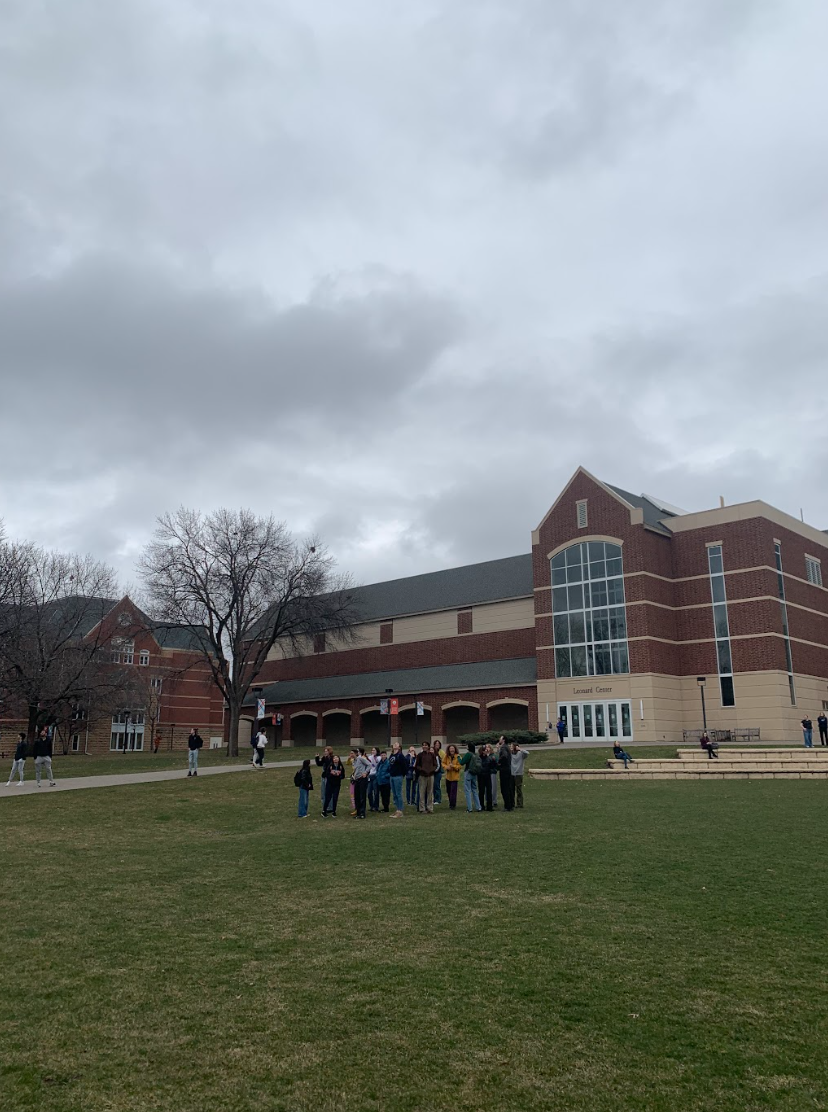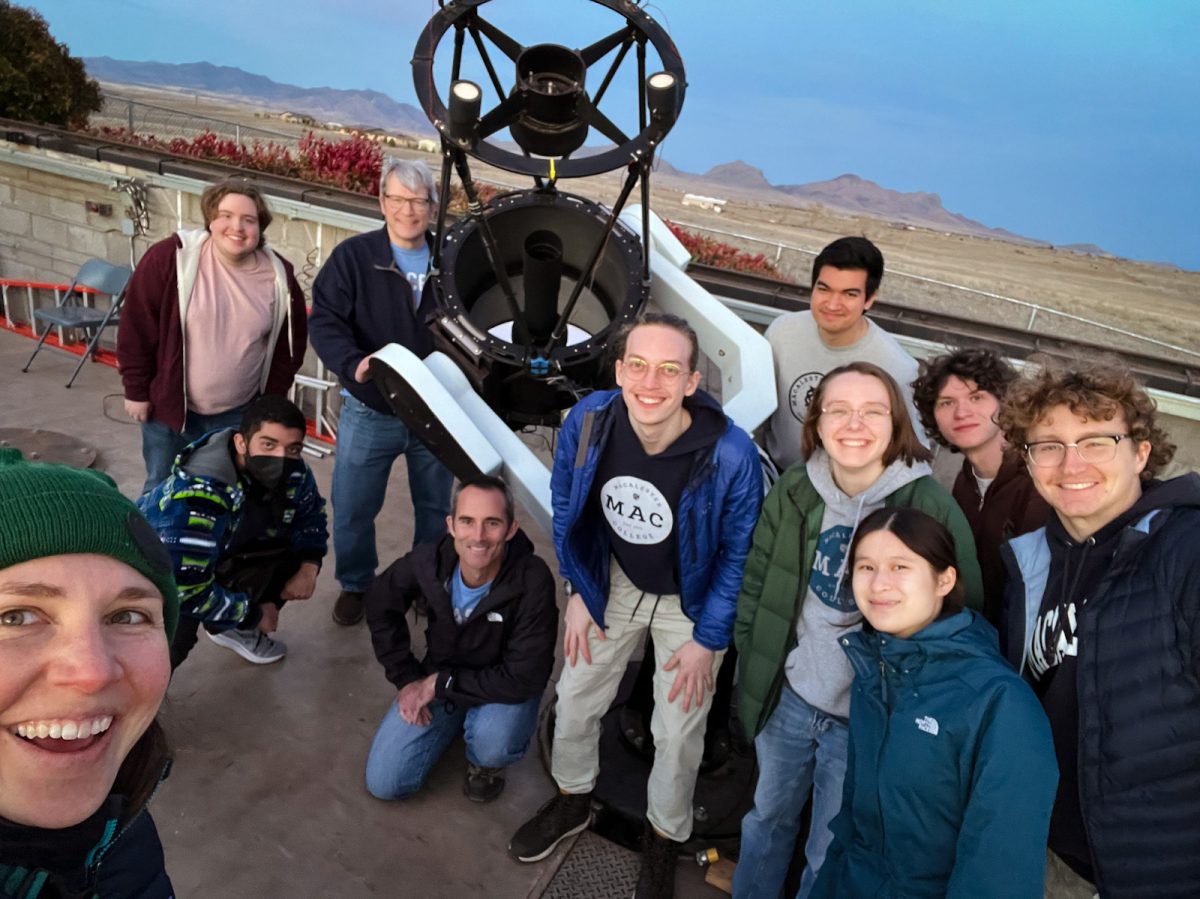
This week The Mac Weekly sat down with visiting assistant professor Justin Butler of the Hispanic and Latin American Studies departments to talk about poetry, philosophy and possibility.
TMW: You’re interested in contemporary poetry, and last semester you taught a course “Hispanic Studies and Critical Theory.” How do poetry and critical theory intersect?
JB: I think that they complement each other to the extent that poems often embed philosophy in their own right. Conversely, I would also say philosophy can be poetic. There’s a certain attention to language that philosophers are very mindful of that shares in that spirit.
In your “Hispanic Studies and Critical Theory” course did you utilize poetry to get at some of these notions that words can gesture toward a philosophy?
We didn’t focus so much on poetry per se. We did look at some Golden Age texts like Baltasar Gracian’s The Art of Worldly Wisdom. And while that’s a text that reads with a certain poetic urgency, it’s also a political text. It’s a text of the court. It is the kind of text that we looked at for how it examined a subject in circulation. How a human being entering into the corridors of power goes about amassing power in order to operate more effectively within that realm. So part of that subject’s power, or her ability to accrue power, relies on the use of language. Sometimes that language is flattery; sometimes that language is the language of decision. But it requires a certain poetics.
You organize the Hispanic Studies Department the (In)opportune Intervention Series. Can you tell me about the series?
So the department has very generously wanted to invite people to share their work with us. We are particularly interested in hearing from someone who is doing something that goes against the grain just a little bit. They take something of a certain import, of a certain pressing nature in contemporary Hispanophone or Lusophone society, and think about the question just a little bit differently. That’s why we’ve called it the (In)opportune Interventions with the “In” bracketed off. As you’ve heard me say, the title of the speaker series takes its inspiration from Nietzsche and his notion of the untimely. In Nietzsche’s understanding of history, he came to valorize what was untimely precise because of how it sought to step outside of whatever historical momentum was being brought to bear on a particular moment; he thought it was important to preserve some space beyond what history seemed to be requiring.
The (In)opportune Intervention Series shares that while we are aware of the relevance of certain kinds of questions, we don’t want to deal with them in ways that are the most obvious. The first speaker, Bill Viestenz, brought a lot of theoretical complexity to bear on the question of Catalonia and nationhood. For the second speaker, Eden Torres, her (in)opportune intervention addressed how the questions of race and capital have never been fully reckoned. For some it may have seemed less urgent, but for me her talk felt as urgent as ever. And then most recently, Sophia Beal talked about the Brazilian city and thinking it beyond the confines of the well-worn space. So these are things that we’ve done, and we’ll try to continue on in that spirit going forward.
What about your personal background and intellectual pursuits brought you to bring this series to life?
I’m interested in smart people and what smart people have to say. So that’s one obvious reason. I think that my own training in critical theory has informed some of the interests of the speaker series. I also think Hispanic Studies in general has a lot to offer the campus community in ways that are not so readily understood.
What are some of these ways?
Sometimes people think of a department like Hispanic Studies as a language acquisition department – and little more than that. One of things that the speaker series allows us to show people who don’t take upper-level courses with us is what other kinds of work we do. Especially if up till now their experience has only been Spanish 101 or 102. It amplifies and broadens the notions of who we are.
What is the place of humor in an (in)opportune intervention?
I would say that what makes something humorous is often how it’s (in)opportune. So, yeah, it’s not just (in)opportune, but often it’s inappropriate. Right? So on some level it would be very nice if it would be only (in)opportune. But sometimes humor moves beyond the (in)opportune into the inappropriate. What’s good about it in either event is how it reveals the underlying assumptions of any situation, of any context and oftentimes points to their absurdity.
Whatever it is everyone’s taking for granted, the clown comes along, or the joker or the buffoon, whoever, comes along and points out whatever it is that’s absurd, that the emperor is not wearing any clothes in this situation. I would say humor has to play a very important role. I don’t know. You make me think the speaker series could be broadening its scope in certain ways!
In the inappropriate and in misappropriation there’s a sense that something gets tried, and a possibility emerges because of something that wasn’t done according to form. There is a lot of knowledge available in these excursions, in these wanderings off of the beaten path. A poet knows that there are lots of happy mistakes in poetry. Different kinds of unintended meanings emerge when you place two words next to each other that all of a sudden the poet finds herself needing to account for. That’s just part of the liveliness of literature, in a very real sense.
What we’ll call the error, in the full sense of the word — because the error isn’t only the mistake, it is also the divagation, the wandering through the space, the error is very productive. Not because it’s wrong, but because of the possibilities that it opens. This takes things back to poetics, and what I didn’t say is that poetry and philosophy — at least the kind of philosophy that I’m interested in — is very attentive to possibility, is very attentive to outstripping its own logic and waiting for opportunities to become available. When it does that — that is to say, while it awaits possibility — you don’t know what exactly it’s going to say. It’s going to say something completely unanticipated and in so saying produces a new kind of knowledge. That’s really where the excitement is. It’s in thinking the unthought, to be Heideggerian about it.


















Anthony Hemmings • Sep 12, 2019 at 12:57 am
Thanks for your article. I also believe that laptop computers are getting to be more and more popular nowadays, and now in many cases are the only form of computer utilised in a household. Simply because at the same time that they’re becoming more and more reasonably priced, their working power keeps growing to the point where there’re as strong as pc’s out of just a few years back.
Lisa Parr • Sep 10, 2019 at 6:24 pm
What’s up to all, how is all, I think every one is getting more from this website, and your views are nice in support of new users.
Carol Ellison • Sep 8, 2019 at 3:08 pm
I haven’t checked in here for some time as I thought it was getting boring, but the last few posts are good quality so I guess I’ll add you back to my daily bloglist. You deserve it my friend 🙂